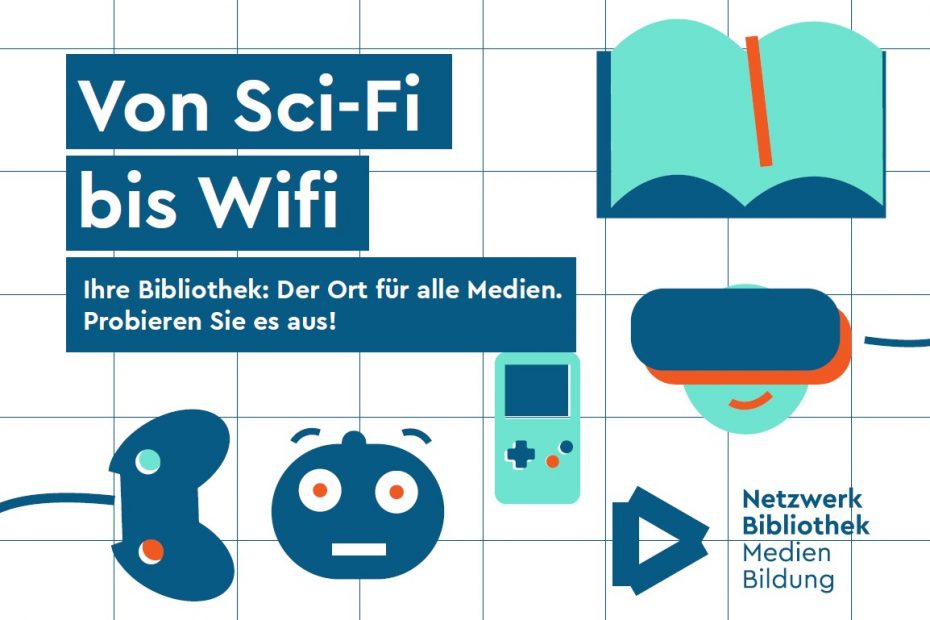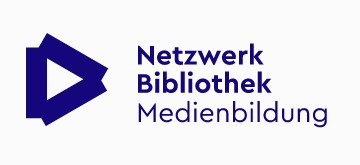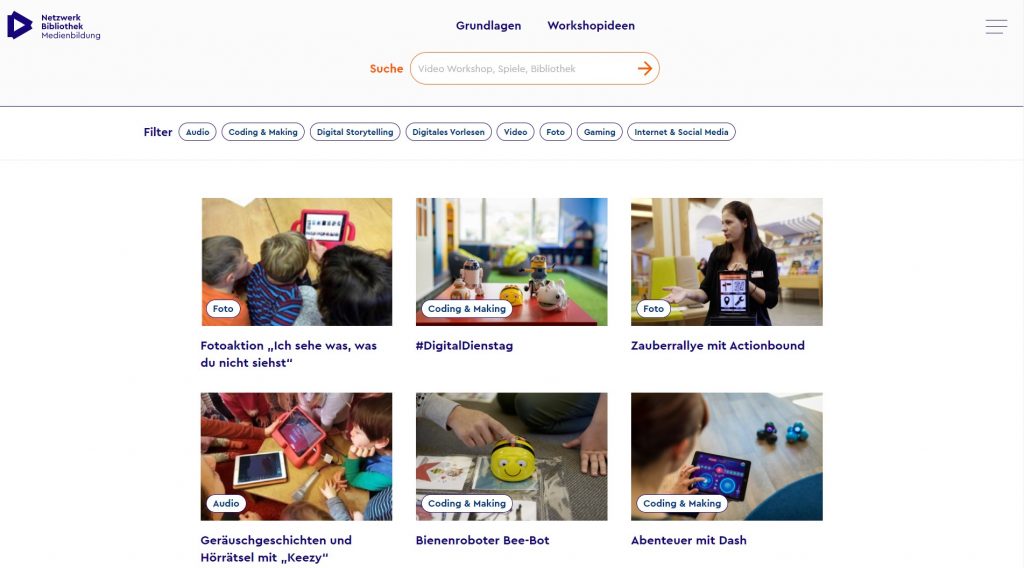On 24 June, the third “Digitaltag” (Digital Day)[1] is being held in Germany. It is a nationwide day of action for digital participation. The alliance for the Digital Day unites more than 25 organisations from civil society, culture, science, business, welfare, and the public sector. The “Deutscher Bibliotheksverband” (German Library Association) joined the alliance right from the beginning. Together, the initiative works to strengthen digital participation nationwide.
A study on digital participation[2] in Germany conducted as part of the Digital Day shows how important this is. 90% of those surveyed said that they are open to digital technologies. At the same time, however, almost 40 % would like more training, and over 30 % would like more spaces to try out digital technologies.
What do we mean by “digital literacy”? Definitions depend on the social practices and context but the one provided by the Western Sydney University provides a good working basis: “Digital literacy means having the skills you need to live, learn, and work in a society where communication and access to information is increasingly through digital technologies like internet platforms, social media, and mobile devices.”[3] Digital literacy thus forms the basis for successful participation in a society that is permeated by digital media, techniques and processes.
Libraries support development of critical thinking
Libraries are places for reliable information through quality-checked media offerings and thorough source research, as well as places to learn how to use digital devices and programmes in a low-threshold way. Due to the increase of information on a growing number of channels, it has become more difficult for all of us to identify serious sources of information. It, therefore, takes some competence, research, and fact-checking to be able to identify reliable sources. It is also an essential task of libraries to support their users in sifting through, classifying and verifying information. At the same time, it is an original task of libraries to strengthen people’s information literacy by training them in the use of sources and giving them advice on research tools. Libraries not only collect information and data, but they also teach people how to deal with it critically. Low-threshold handouts, such as “How to spot Fake News”[4] published by the International Federation of Library Associations (IFLA), are very helpful.
Digital news and information literacy for the young generation
The question: “Where does the information come from?” must become part of the school and non-school education. Children and young people must be sensitised to disinformation at an early age, but adults also need corresponding offers. Libraries are important partners for schools, vocational schools, and adult education centres.
The Library Centre Schleswig-Holstein in Germany has designed the simulation game “FakeHunter”[5] for pupils. The simulation game teaches how to deal critically with news reports and develops tools to expose fake news. With the help of so-called “fake check tools”, various reliable sources from the internet, databases and libraries are checked and verified. The “FakeHunters” were originally developed for public libraries in Schleswig-Holstein and have since been extended to the entire German-speaking region.
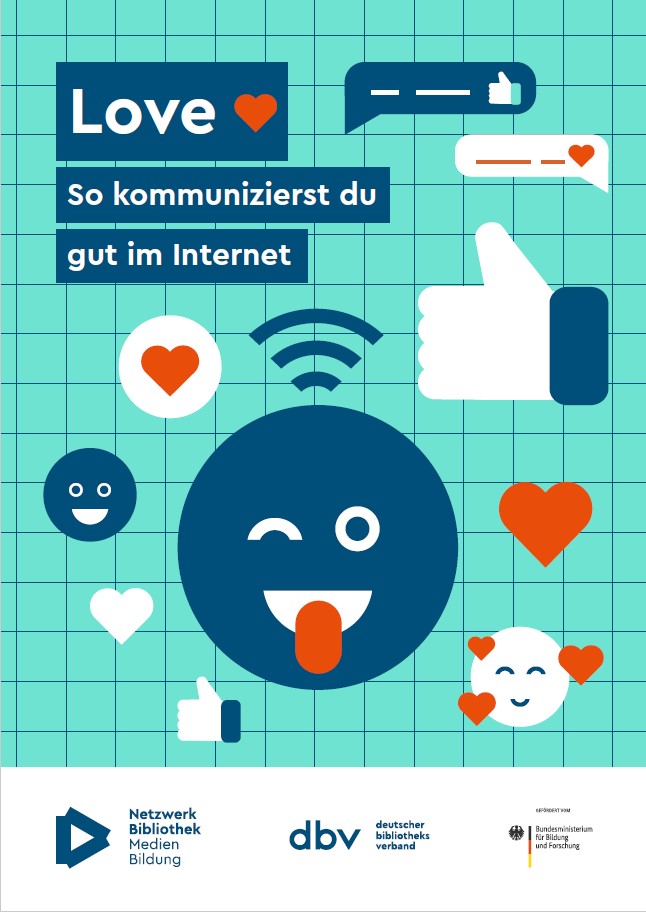
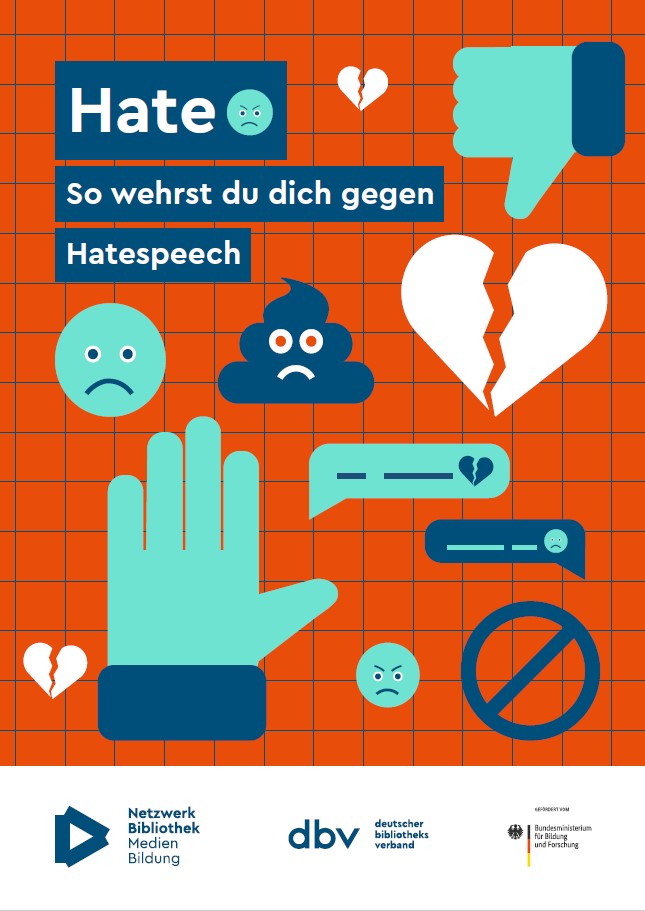
and “Hate – this is how you defend yourself against hate speech”
Digital news and information literacy for the elderly generation
A recent study called “Quelle: Internet?”[6] (“Source: The Internet?”) concluded that digital news literacy in Germany decreases with age. What does this mean for the imparting of digital literacy? The result shows that almost half of those surveyed have rather low digital news and information literacy. Disinformation is one of the biggest threats to a democratic society. This became very clear during the pandemic of the last few years and again in the war against Ukraine: our democracies depend on well-informed citizens.
This issue must therefore be increasingly addressed also in non-school institutions like libraries. It involves different facets: not only knowledge about media influences as well as knowledge about how media are produced and distributed but also the question of how media themselves can be used and shaped. The study suggests expanding the offerings of adult education centres and libraries in the direction of digital literacy. For years, libraries have been expanding their digital collections to offer comprehensive access to information regardless of the media format. At the same time, they are expanding their training offers to also support the use of digital media and strengthen information literacy.
To ensure that these offers reach all age groups and those who would perhaps not visit a library on their own, libraries systematically cooperate with various partners such as daycare centres, schools, or senior citizens’ facilities. Libraries also specifically target the elderly. For some years now, for example, the German Library Association has been working together with the “Bundesarbeitsgemeinschaft der Seniorenorganisationen – BAGSO” (Federal Association of Senior Citizens’ Organisations) and the association “Deutschland sicher im Netz e.V.” (Germany Secure on the Net) as part of the project “Digitalkompass” (Digital Compass)[7]. Libraries are among the more than 100 locations where internet guides help older people to try out digital offers for themselves.
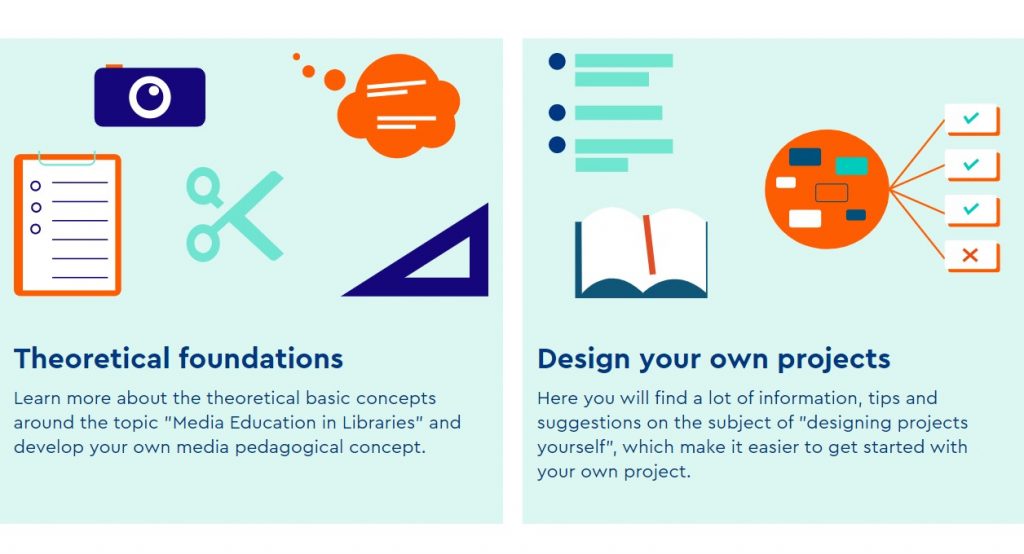
Libraries form networks
Schools and daycare centres should be made more aware of the topic of digital literacy. Teachers and daycare centre staff must be trained in digital literacy across the board.
More formats should be developed for schools and daycare centres in which the use of information channels and media is trained. This includes entering cooperation with partners who are familiar with the topic of media and information literacy, such as libraries.
Library Media Literacy Network
Since 2019, the German Library Association has implemented the project “Netzwerk Bibliothek Medienbildung” (Library Media Literacy Network) with the support of the Federal Ministry of Education and Research. The aim is to train library staff in the field of digital media literacy and to support them in passing on their expertise to multipliers in the field of education, upbringing, and social affairs. Through in-depth online events and consultation hours, library staff are supported in using the teaching materials developed in the project for individual workshops with multipliers. This is flanked by numerous online seminars and tutorials on selected topics of digital media literacy.
The Network Academy
With the qualification project, the German Library Association has created an important foundation for digital literacy teaching in libraries. With the support of the “Institut für Medienpädagogik in Forschung und Praxis JFF” (Institute for Media Literacy in Research and Practice) the German Library Association has published a comprehensive online platform for media literacy in libraries[8]. The digital Network Academy for libraries includes low-threshold self-learning tools for media literacy workshops on topics such as digital storytelling, video, and gaming in libraries. Sorted by topics, target and age groups, group size and event duration, libraries can develop workshop ideas for children and young people as well as for teachers and daycare workers. In addition, the website offers a wide range of literature tips, target group analyses and step-by-step instructions. An overview of dates for events, workshops, and further training in the field of media literacy rounds off the Network Academy. The need for this is great. This is shown by the more than 2,500 participants in the network events so far.
On 14 June 2022, the project will organise a BarCamp on “Networked media literacy”[9] at the Cologne Central Library which brings libraries and educational institutions together.
The open format of the BarCamp invites best practice exchange and networking and offers insights into the creative diversity of digital offerings in libraries. Staff from libraries and educational institutions are invited. The keynote speech will be given by Prof. Dr. Stefan Aufenanger, Professor of Educational Sciences and Media literacy, on the topic of “Media literacy – How Libraries Use Digital Media in Educational Processes and Have Fun Doing It!”.
Expanding to rural areas: Library Media Literacy Network II
According to a forecast by the Federal Institute for Research on Building, Urban Affairs and Spatial Development (BBSR), rural regions in Germany will experience a serious decline in population by 2040. The consequence: less tax revenue, less funding for infrastructure measures, and less funding for the voluntary task of “culture”.
Libraries are often the last remaining cultural institutions in rural areas. There are over 9,000 public libraries in Germany. Of these, more than 6,000 are public libraries with a service area of up to 50,000 inhabitants. They have a special function: Unlike in the large and medium-sized cities, where there are numerous libraries, media literacy associations and actors, the smaller and smallest libraries in the countryside often provide many different schools and daycare centres with media literacy services. At the same time, however, the libraries often lack the appropriate specialised staff to develop new media literacy projects and establish cooperation with the surrounding schools and daycare centres.
It is already becoming apparent that the needs of these libraries go far beyond the support that can be offered within the framework of the project “Library Media Literacy Network”. On the one hand, this has to do with the current situation during the Corona pandemic: small libraries have been limited primarily to lending operations since 2020. It was and is hardly possible for them to hold practical workshops and events of any kind on site. In addition, the various training formats in the project have once again confirmed what the association has known for a long time: the field of libraries is very heterogeneous. While some have been cultivating tried and tested cooperation with education partners for years and can easily tie in with them in media literacy, the conditions of small libraries in rural areas are different.
The library staff of these smaller libraries, trained by the project, are only just beginning to teach media literacy. With few staff – some of whom work on a voluntary basis -, scarce financial resources and limited equipment, these libraries cannot achieve the same results as better positioned libraries in larger cities and communities. They often lack the confidence to conduct their own workshops for multipliers with what they have learned in the project, which manifests itself in a great demand for further advice from the experts and the project team. In addition, smaller libraries in rural areas often have little experience regarding cooperation in media literacy and, due to the lack of suitable local partners, are faced with the special challenge of having to establish cooperation beyond their own community.
To establish sustainable media literacy programmes on a broad scale in rural regions, specific support and assistance is needed for the libraries located there. The goal is to strengthen media and information literacy, especially for children and young people in rural regions, to improve their opportunities for digital participation. The follow-up project “Netzwerk Bibliothek Medienbildung II” (Library Media Literacy Network II) aims to enable and support smaller libraries in rural areas to expand their media literacy services and to professionalise cooperation with schools and daycare centres.
The Library Media Literacy Network II project builds on the experiences, concepts and materials of the Library Media Literacy Network project and expands them to the concrete needs and requirements of libraries in rural areas. In concrete terms, this means low-threshold instructions for the implementation of media literacy workshops, a focus on the development of cooperation with regional partners in rural areas, as well as practice-oriented workshops and advice for staff members who have little experience in the implementation of media literacy workshops in libraries. The aim is to anchor libraries more firmly as central places of media literacy in their region and to improve the digital media skills and participation opportunities of children and young people. In addition, the libraries thus arouse further interest, and the demand also increases from new target groups.
The implementation of ” Library Media Literacy Network II” is planned from August 2022 to 2025. From the end of 2024 to the middle of 2025, the results of the projects “Library Media Literacy Network I and II” will be evaluated. It is planned that the results of the evaluation can be used as the basis for a certified further education course, which will then be planned, implemented, and evaluated between 2025 and 2028, and will hopefully be established on a sustainable basis across the board.
Barbara Schleihagen is the Federal Executive Director of the German Library Association (dbv). With more than 2,000 members, the dbv represents over 9,000 libraries with 25,000 employees and eleven million users. Its central concern is to strengthen libraries to ensure unhindered access to media and information for all people.
[1] Digitaltag (digital day) https://digitaltag.eu/ (29.05.2022)
[2] Studie zu digitale Teilhabe (study on digital participation) https://digitaltag.eu/studie
[3] Western Sydney University: What is digital literacy? https://www.westernsydney.edu.au/studysmart/home/study_skills_guides/digital_literacy/what_is_digital_literacy (29.05.2022)
[4] IFLA: How to spot fake news? 2017 https://repository.ifla.org/handle/123456789/167 (29.05.2022)
[5] https://www.diefakehunter.de/ (29.05.2022)
[6]“Source: the internet – testing digital news and information literacy in Germany.” Study by Stiftung Neue Verantwortung, March 2021 https://www.stiftung-nv.de/en/publication/source-internet-testing-digital-news-and-information-literacy-germany (29.05.2022)
[7] Digital-Kompass https://www.digital-kompass.de/ (29.05.2022)
[8] Netzwerk Bibliothek Medienbildung Online Akademie https://netzwerk-bibliothek.de (29.05.2022)
[9] https://netzwerk-bibliothek.de/de_DE/barcamp (29.05.2022)

